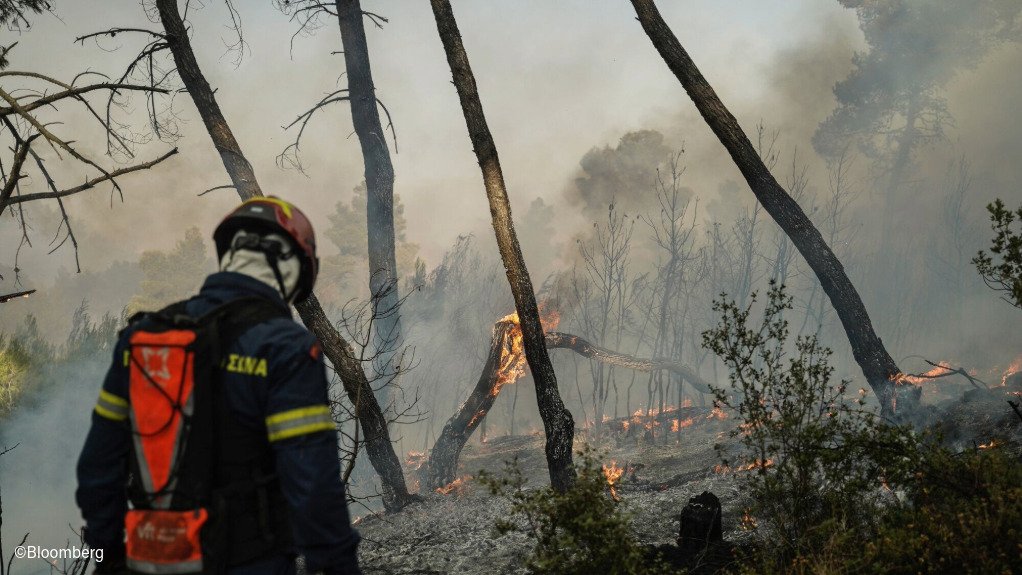A chronic lack of ambition and climate action by countries across the world over the past three years means the goal to keep global warming below 1.5C will soon be dead, the United Nations has warned in a new report.
Continuing with current policies means the world will be on course for a temperature rise of 3.1C before the end of the century, while implementing promised reforms would at best lead to an increase of 2.6 °C — well above the level at which critical climate tipping points may be breached, the UN Environment Program said. Little progress has been made over the past few years despite repeated calls for stronger action plans.
To underscore the lack of action, Madagascar is the only country that has come forward with a strengthened 2030 climate target this year, according to UNEP. The development does little to change the outlook for global emissions.
“The emissions gap has not changed,” said Anne Olhoff, UNEP’s chief climate advisor, in an interview. “Countries have not responded to calls from the three last COPs to strengthen their 2030 targets and as a result, we are facing the same emissions gap and some dire temperature projections.”
The world is yet to turn the tide on rising CO2 emissions, with the amount of greenhouse gases released into the atmosphere climbing 1.3% last year, UNEP said. The landmark Paris Agreement in 2015 set a goal to limit global warming to well below 2 °C above pre-industrial levels, and ideally to 1.5 °C. To meet the more ambitious target, countries must collectively commit to cut emissions 42% by the end of the decade and 57% by 2035, compared with 2019 levels.
“We need global mobilization on a scale and pace never seen before — starting right now, before the next round of climate pledges — or the 1.5 °C goal will soon be dead,” said Inger Andersen, UNEP’s executive director.
The question of what more needs to be done to bend the curve of emissions will largely be left unanswered at this year’s COP29 summit in Baku, Azerbaijan, which is set to focus on how to scale climate finance from billions of dollars to trillions. A commitment to transition away from fossil fuels made at last year’s summit has been questioned by the likes of Saudi Arabia, who see it as one component of a “menu” of possible options.
Countries are due to come back next year with updated climate plans that are aligned with the goal of keeping a global temperature rise to 1.5 °C. The bulk of the responsibility to curb greenhouse gases lies with the Group of 20 countries, which saw emissions increase last year, accounting for almost four fifths of the total. Seven members — including China and India — are yet to peak their emissions, UNEP said. Once they do so, emissions will have to drop rapidly.
When it comes to finance, UNEP said the cost of the transition is relatively affordable. While funding for mitigation needs to be more focused on developing countries, investment globally must increase between $900-billion and $2.1-trillion per year, roughly 1% of the world’s total economic output, to achieve net zero by 2050.
Despite the size of the existing emissions gap, there are some signs of progress. UNEP estimates there is a 70% chance that global emissions will decline this year — meaning 2023 saw the peak — if current clean tech growth continues and projections of other greenhouse gases, like methane, into the air are cut. China — the world’s biggest polluter — saw its CO2 emissions fall by 1% in the second quarter of this year, meaning it too may have peaked last year.
But while the 1.5C goal remains “technically possible,” the UNEP report stressed it will require massive effort. Another goal set at COP28 to triple renewable power capacity by the end of the decade is at risk as the rollout of wind power lags. The future of climate policy in the world’s highest historical emitter — the US — also remains uncertain amid the prospect of a Donald Trump election win in November, just days before leaders assemble in Baku.
“Climate crunch time is here,” Andersen said.
EMAIL THIS ARTICLE SAVE THIS ARTICLE
To subscribe email subscriptions@creamermedia.co.za or click here
To advertise email advertising@creamermedia.co.za or click here











